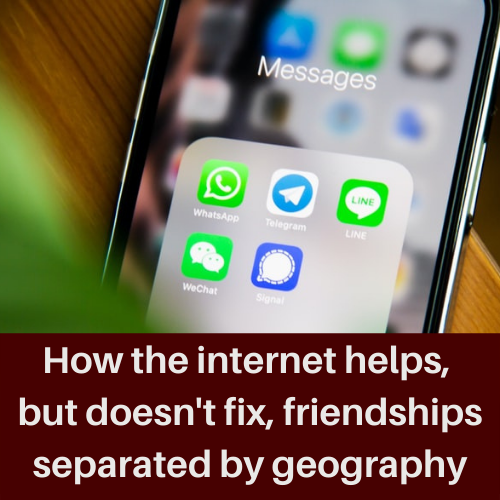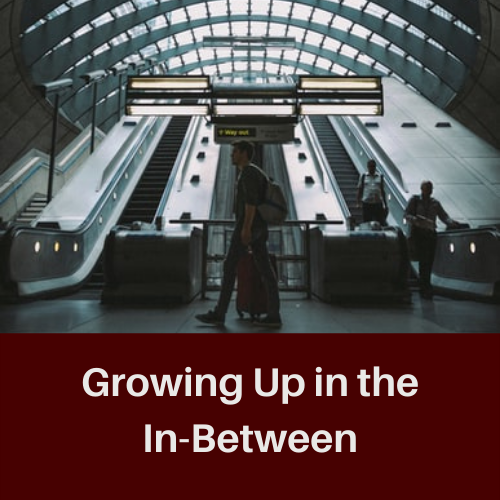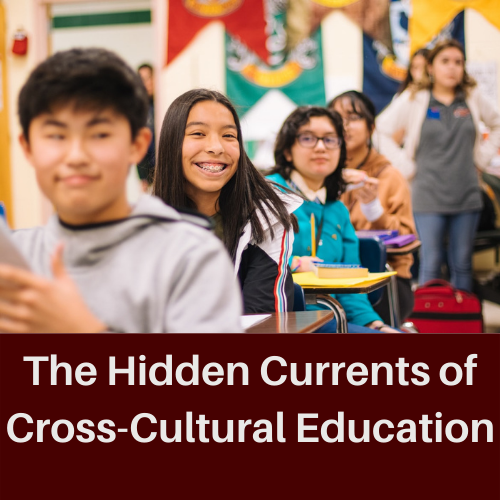
How the internet helps, but doesn’t fix, friendships separated by geography
The ability to stay in touch after a move doesn’t take away the sadness of losing that person from daily life. And there’s no guarantee, even with the internet, that two people will actually stay in touch. So while reminding someone they can stay in touch through the internet is well meant, these comments usually aren’t comforting. It often makes TCKs feel that they aren’t supposed to grieve, or that they shouldn’t show their sadness. When a child says goodbye to a friend, they don’t yet know what that friendship will look like on the other side of the move — whether it will continue or not, whether they will ever see their friend in person again or not. Sometimes there will be reunions, but not always. It is so important for TCKs to be able to grieve friendships that change or are lost. Their feelings of sadness are real and valid and need to be expressed – and are worth listening to.

Australian TCKs: update
The first draft of the Aussie TCKs manuscript is complete! Now we are looking for more survey responses to provide better statistics, and selecting quotes from Australian TCKs to go in the book. As you can see, about 3/4 of the people who have responded so far are Millennials or Gen Z adult TCKs. We are definitely seeking responses from older Australian TCKs as well! The responses to years lived outside Australia in childhood are quite evenly spread, and can be divided into five groups of similar size.

Heart of a TCK, part 1: Everyone Leaves
If you haven’t experienced this litany of losses yourself, I hope you can begin to imagine how this bruises a young heart. Losing people we care about is painful. Often it’s harder to be the one left behind. Quite rationally, many TCKs develop methods to try to avoid the sadness and emotional pain of goodbyes that they see as inevitable.

Missing the ordinary
I’ve been missing Beijing lately. It’s hard to explain exactly what it is I miss. I was just living an ordinary life. Buying groceries, cooking meals, working from home, meeting a friend at a cafe, or for dinner. But all the little things of life are subtly different in each place. The sights and smells and sounds are different.

Wearable souvenirs
I began to collect jewellery as souvenirs. Rather than something that sits on a shelf, each piece of jewellery gets my attention when I pick it up and put it on – and I start my day thinking happy thoughts of the person or place connected to it.

Australian TCKs
I grew up in Australia until my Dad’s company transferred us to the USA. I was 13; my sisters were 11 and 9. We were Australian Third Culture Kids. Australian TCKs are under-resourced. There are very few programs/networks to support them. TCK literature centres on Northen Hemsiphere school years and is often quite American in style. So, I'm collaborating on a resource specifically for Australian TCKs.

Third Culture Kids Live In Between
Living in-between isn’t a bad thing! But it is a significant aspect of what TCK childhood looks like for many, and the trends shown in this infographic suggest it will continue to grow in significance as the 21st century continues.

Growing up in the In-Between
TCKs are caught between places, people, cultures, and experiences. So often they are not quite present, not quite accepted, not quite at home. Most do not identify entirely with one country – they are influenced by, and attached to, multiple countries at once. While TCKs may know they are ‘foreigners’ in their host countries, they may feel even more ‘foreign’ when visiting their passport countries.

TCKs and their tattoos
When you meet a TCK with a tattoo, consider the deeply held feelings it may represent - all the unspoken words and unshared feelings that lie behind that ink. Their connection to the place, people, and language it represents is as tangible and permanent as the tattoo - even if they can’t see or express it in their current life. It is love they have etched in their skin.

How to Keep Living When You’re Drowning in Limbo
When you’re living in limbo, you’re in an intermediate state, and you don’t know how long it will last. You’re stuck. You can’t make decisions. Uncertainty is a difficult state to live in. It’s hard to plan for the future when you don’t know what’s coming. It’s hard to enjoy the moment when you know it could change. Impermanence isn’t a place where you can be at ease.

Are immigrant kids TCKs?
Both immigrant kids and traditional TCKs share the conflict of expectation to connect to their parents’ cultures, while living in a different culture. This means many can identify with each other struggles in this area, such as accusations of “betraying” one culture by attaching to the other (and perhaps vice versa).

Six Tips for a Good Transition
We want to do it all and be busy and fix things. While we do need the forward momentum of this activity, if we live in a constant state of ‘pushing through’ then chances are the stress we ignore will catch up with us eventually. Doing transition slowly, with care and kindness, is healthier in the long term.

Change, transition, and why it’s hard
Change is an event. Transition is the process of anticipating and integrating that change. Change is concrete. It is the moment in time when I go from this to that, here to there. But we still often underestimate the full impact of a change. A period of transition continues until I am accustomed to and comfortable with my post-change life – when I have integrated those changes and my situation changes from “new” to “normal”. As you might imagine, sometimes this can take a long, long time.

Third Culture kids feel Misunderstood
While many TCKs have experienced the feeling of being misunderstood, it doesn’t have to be that way. The goal of the work I do is building bridges of understanding between people who care about each other, but see the world differently.

The hidden currents of cross-cultural education
Over time the child adapts to the school’s cultural expectations. As the child spends more time in the school's worldview, their attitude may shift as they absorb elements of the school culture. These changes are natural. Cross cultural schooling means your child is being trained to see the world differently than you do.

The Impact of Cross-Cultural Education on Family Dynamics
Every student is shaped by the cultural values of the school they attend. Sending your child to a school with a different cultural outlook to your own means these different cultural values will become part of your child’s life – and therefore, part of your family’s future.

Language Matters
We have deep emotions about the languages we do, and don’t, speak. Too often we focus merely on the practical aspect of learning languages, ignoring the emotional impact language has on us as we use it to communicate, express ourselves, and exist in relationship with others.

The Impact of School Culture
Every culture has a different philosophy of education; what is considered normal and acceptable is relative. The wellbeing of children is important to parents and teachers alike. We may have different ideas of what wellbeing looks like and how to get there, which can be frustrating and even hurtful. But remember, we are on the same team, if not on the same page.

Dear Repatriating TCK
The pain we feel at saying goodbye is a good sign – it means we love something, or someone. It’s much better to have a life full of love, even though that means it hurts to say goodbye, than to be all alone everywhere you go.

Cross-Cultural Intersectionality
There are lots of ways to have a cross-cultural childhood, and often these different experiences overlap. Thus it is vitual that we discuss cross-cultural intersectionality: the overlap of multiple cross-cultural identities. Not just a TCK, but also…